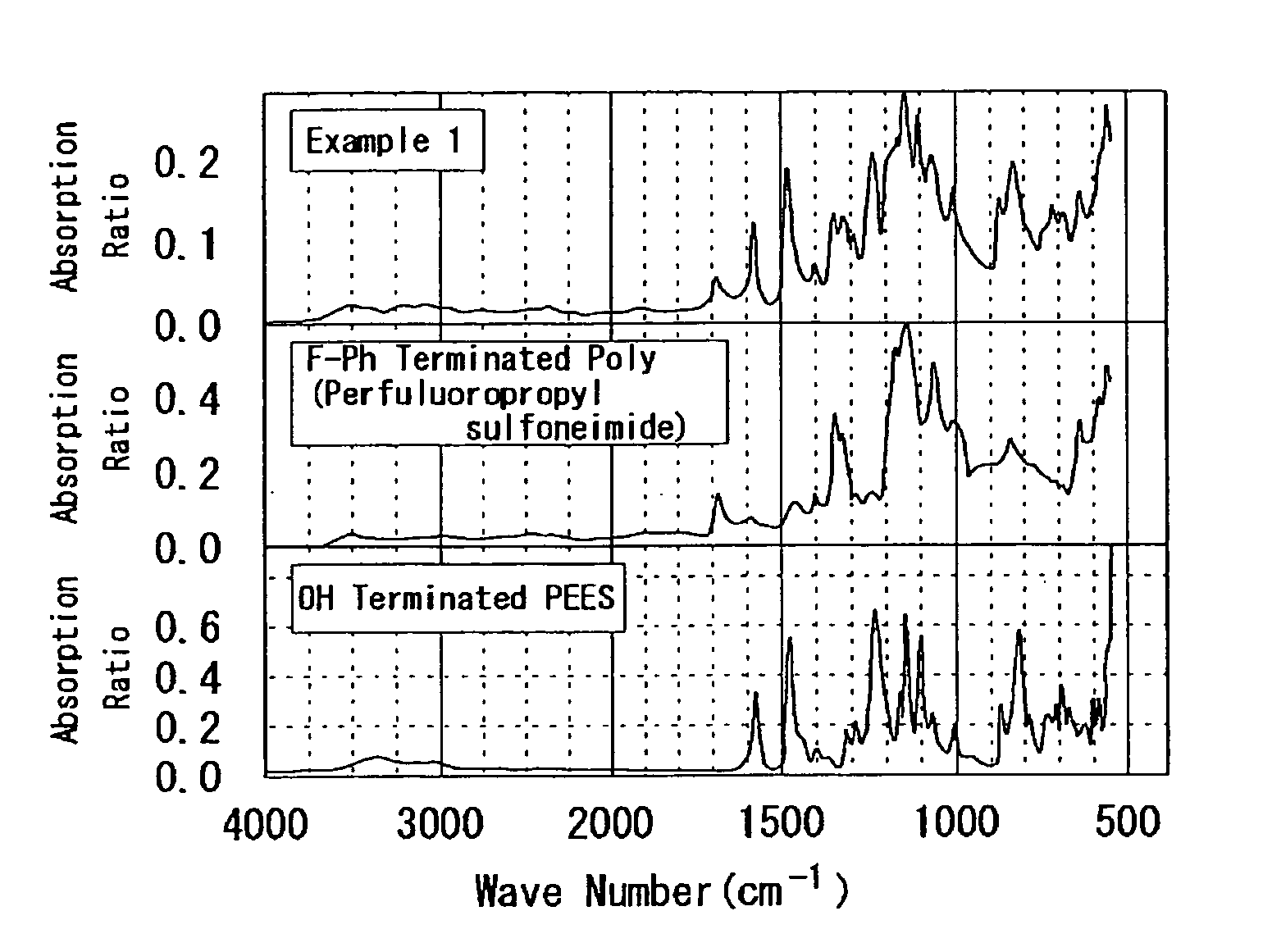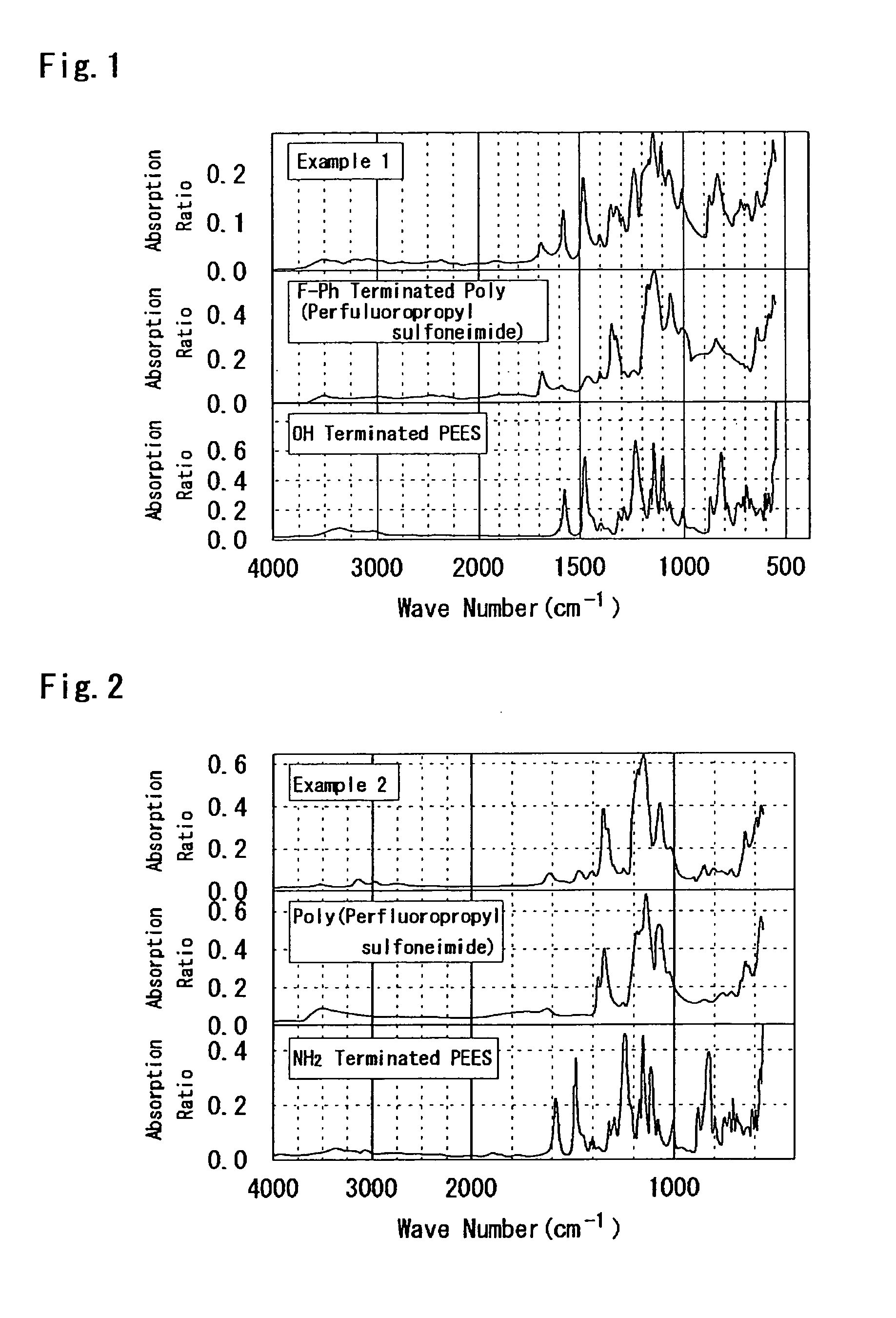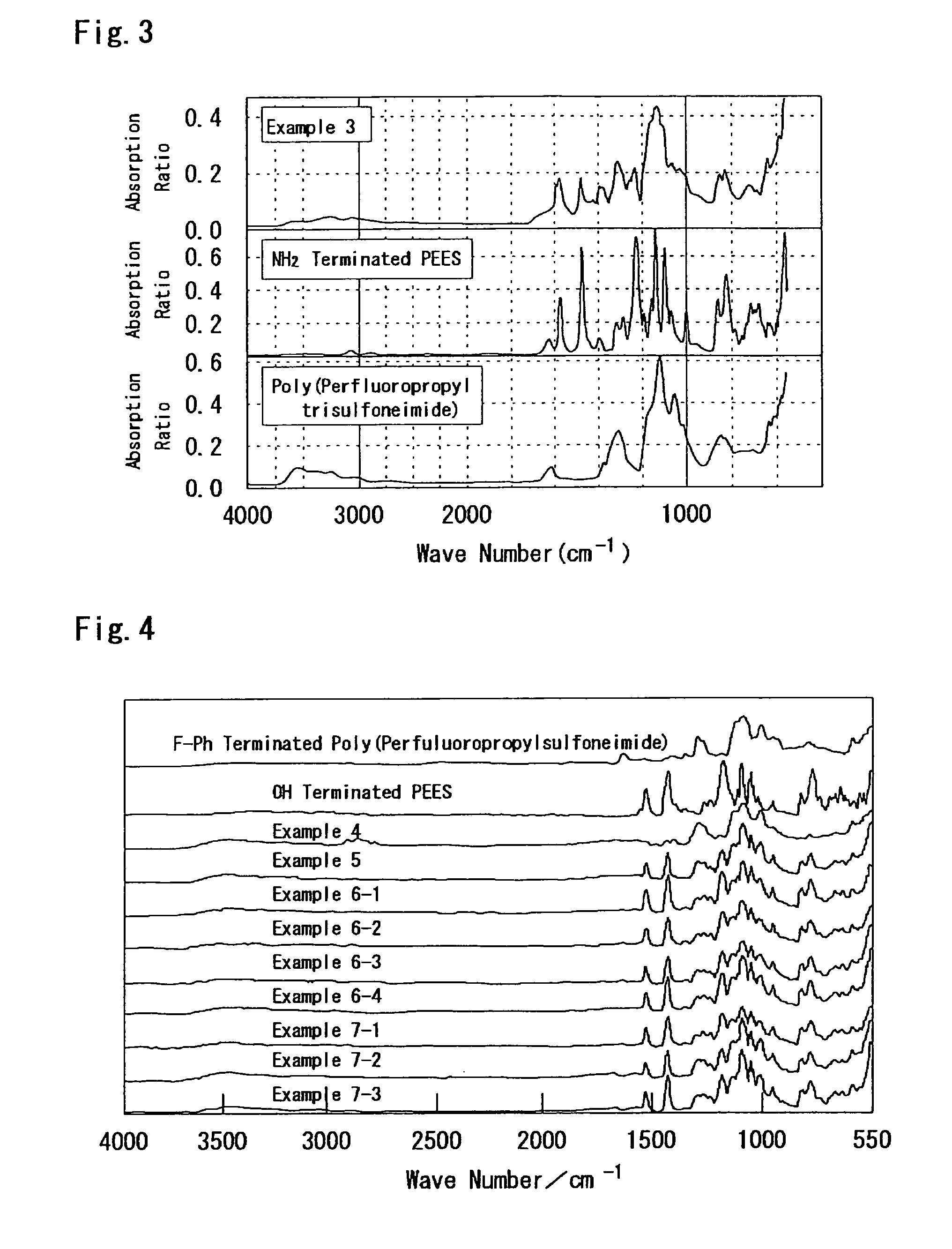Electrolyte, production process therefor, electrolyte membrane, production process therefor, catalyst layer and fuel cell
a technology of electrolyte and catalyst layer, which is applied in the direction of cell components, final product manufacturing, sustainable manufacturing/processing, etc., can solve the problems of low mechanical strength at high temperatures, problems to be resolved, and poor oxidation resistance of fluorocarbon-type electrolyte, etc., to achieve high ion exchange capacity, high proton conductivity, and high oxidation resistance
- Summary
- Abstract
- Description
- Claims
- Application Information
AI Technical Summary
Benefits of technology
Problems solved by technology
Method used
Image
Examples
examples 1 to 3
Comparative Example 1
1. Manufacturing of the Sample
1.1 Synthesis of the Hydrophobic Segment
1.1.1 Synthesis of OH Terminated PEES (poly(etherethersulfone))
[0233]To a 500 mL three-neck flask to which the Dean-Stark tube and the three-way cock were connected, bisphenol: 7.17 g (38.5 mmol), bis-(4-chlorophenyl)sulfone: 10 g (34.8 mmol), and K2CO3: 24.3 g (176 mmol) were added, and they were dried for 1 hour under vacuum.
[0234]Commercial dehydrated DMAc: 120 mL and toluene: 120 mL were added thereto, and heated at 100° C. for 1 hour. Subsequently, the temperature was slowly increased to 165° C., the generated water and toluene were in an azeotropic state, and water was removed along with toluene from the reaction system. In addition, after they were reacted for 7 days at 165° C., an excess amount of bisphenol: 12.9 g (69 mmol) was added, and the reaction was performed at the same temperature for 2 days. After the reaction was carried out, the precipitated inorganic salts were filtered. T...
example 1
[0247]According to the following process, PEES-block-poly(perfluoropropyl sulfoneimide) was synthesized. That is, to a 100 mL two-neck recovery flask to which the Dean-Stark tube and the three-way cock were connected, OH terminated PEES (h=2.2): 0.67 g (0.64 mmoI), F-Ph terminated poly(perfluoropropyl sulfoneimide) (j=17): 0.99 g (0.19 mmol), K2CO3: 0.99 g (7.2 mmol), and 18-crown-6: 0.12 g (0.44 mmol) were added, and they were dried for 1 hour under vacuum.
[0248]Commercial dehydrated DMAc: 15 mL and toluene: 20 mL were added thereto, and heated at 100° C. for 1 hour. Subsequently, the temperature was slowly increased to 165° C., the generated water and toluene were in an azeotropic state, and water was removed along with toluene from the reaction system. In addition, after they were reacted for 14 days at 165° C., they were reprecipitated in THF and water and dried under vacuum for overnight to obtain a desired product (0.24 g). The following Formula (c.1) illustrates the synthesis...
example 2
[0250]According to the following process, PEES-block-poly(perfluoropropyl sulfoneimide) was synthesized. That is, to a 50 mL flask, NH2 terminated PEES: 0.96 g (0.1 mmol), C3A: 2.48 g (8 mmol), C3F: 2.53 g (8 mmol), triethylamine: 8.8 mL, and DMAc / DMSO (2 / 1): 15 mL were added, and heated at 90° C. for 10 days. After that, the solvent was removed by distillation, and the reaction product was washed with the NaOH aqueous solution, heated in the 3N H2SO4 aqueous solution at 50° C. for 12 hours, and heated in water at the same temperature for 12 hours. In addition, this was reprecipitated in THF to obtain a desired product (150 mg). The following Formula (c.2) illustrates the synthesis scheme thereof.
[0251]
1.3.3 Electrolyte 3
PUM
| Property | Measurement | Unit |
|---|---|---|
| boiling point | aaaaa | aaaaa |
| temperature | aaaaa | aaaaa |
| conductivity | aaaaa | aaaaa |
Abstract
Description
Claims
Application Information
 Login to View More
Login to View More - R&D
- Intellectual Property
- Life Sciences
- Materials
- Tech Scout
- Unparalleled Data Quality
- Higher Quality Content
- 60% Fewer Hallucinations
Browse by: Latest US Patents, China's latest patents, Technical Efficacy Thesaurus, Application Domain, Technology Topic, Popular Technical Reports.
© 2025 PatSnap. All rights reserved.Legal|Privacy policy|Modern Slavery Act Transparency Statement|Sitemap|About US| Contact US: help@patsnap.com



